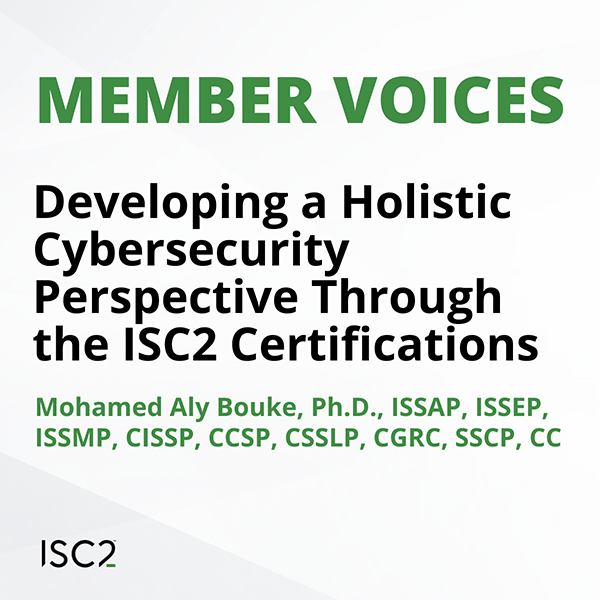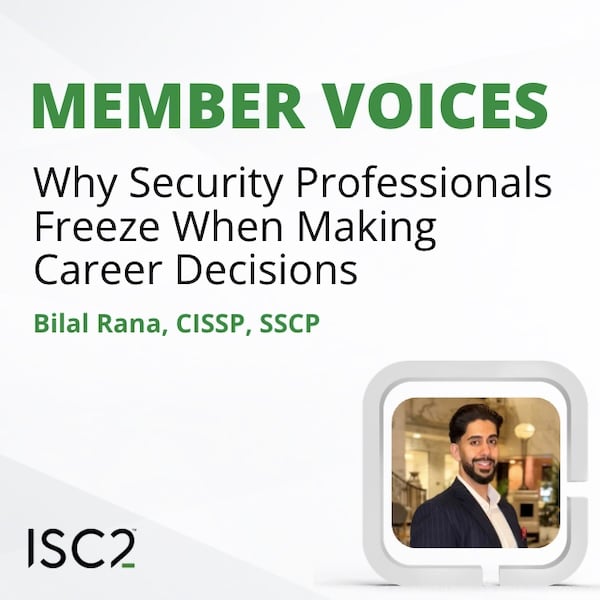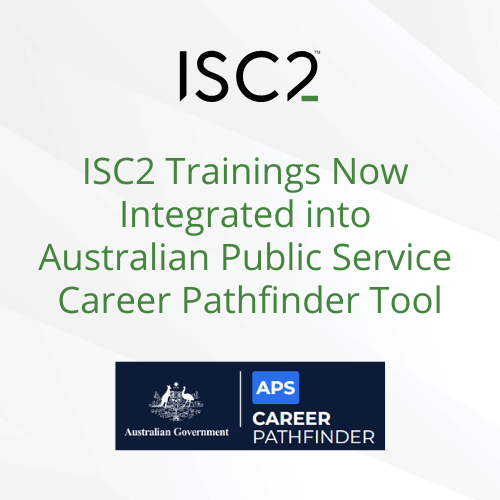Transitioning military personnel - come to learn valuable insights from a panel of recruitment experts as they discuss “Critical Next Steps for Transitioning Military '' on Thursday, October 26 at 3:05 pm CT in the Career Center at ISC2 Security Congress.
Meet the Panel
 This military transition discussion will feature Kirsten Renner, Tiffany Robbins, and Michael McCoy. Kirsten Renner, Talent Engagement Lead at Accenture Federal Services is a passionate supporter of active-duty service members, veterans, and transitioning military job seekers, in addition to being a proud Army mom. Kirsten has a history of providing resume reviews and guidance to transitioning military personnel, to help them translate their skills to best sell themselves and land their next career opportunity.
This military transition discussion will feature Kirsten Renner, Tiffany Robbins, and Michael McCoy. Kirsten Renner, Talent Engagement Lead at Accenture Federal Services is a passionate supporter of active-duty service members, veterans, and transitioning military job seekers, in addition to being a proud Army mom. Kirsten has a history of providing resume reviews and guidance to transitioning military personnel, to help them translate their skills to best sell themselves and land their next career opportunity.
 Tiffany Robbins, Senior Aerospace Recruiter at Quest Defense is a Marine Corps veteran turned recruiter, due to her natural desire to help people and be a part of their journey. As a recruiter at a defense contractor that hires military talent, Tiffany loves helping fellow veterans in their transition to the civilian world.
Tiffany Robbins, Senior Aerospace Recruiter at Quest Defense is a Marine Corps veteran turned recruiter, due to her natural desire to help people and be a part of their journey. As a recruiter at a defense contractor that hires military talent, Tiffany loves helping fellow veterans in their transition to the civilian world.
 Michael McCoy, Sr. Manager, Military Recruitment Programs at Verizon has been in the military for 12 years and currently serves in the Tennessee Army National Guard. The last eight years, Michael has focused his efforts in the military transition space, running programs that support transitioning service members. In his current role, Michael enjoys the opportunity to serve any veteran, at any point in time, wherever they're at in their career journey.
Michael McCoy, Sr. Manager, Military Recruitment Programs at Verizon has been in the military for 12 years and currently serves in the Tennessee Army National Guard. The last eight years, Michael has focused his efforts in the military transition space, running programs that support transitioning service members. In his current role, Michael enjoys the opportunity to serve any veteran, at any point in time, wherever they're at in their career journey.
Prepare for a Successful Conference Experience
Kirsten urges you not to be afraid of networking at ISC2 Security Congress. “Showing an interest in what is being taught, in the technical talks in particular, is going to open the door for conversations to happen,” explains Kirsten. “Networking is going to happen quite naturally in the audience of the talks, as well as in the hallways. They call it ‘hallway con.’ You're going to meet so many people when you're standing in lines. When you wonder what they're doing there, ask them, and you’ll find out that you have a lot in common with those people.”
You can also use the buddy system to help you navigate the conference. “I think for a lot of military people, we feel most comfortable around our own people,” admits Tiffany. “You put us with a bunch of civilians and we wonder, ‘How do we act? What do we do?’ So find somebody to go with you. Or pick a buddy while you're there, somebody who's in the same transition process as you.” And while you’re at the conference, “take notes and make a list of people that really stand out to you, so you can connect with them afterwards,” suggests Tiffany.
“It can be difficult breaking the ice with somebody new and figuring out what you're going to say,” says Michael. “So go in with two or three preset ways you can start every conversation, to get over the hurdle of making contact. And start having those conversations with the end in mind. You shouldn't go into any event without an objective of what you're trying to accomplish.” At networking events, “everybody is there to have conversations about transition, careers, opportunities, companies, and things like that,” adds Michael. “This is why you're there. This is the right moment and opportunity.”
Military Transition Insights to Look Forward to in the Career Center
“When you're in that six to eight month period of transitioning out, you really have to be working on developing a plan for yourself, and for your future,” recommends Tiffany. “There's so much support while you're in. You're kind of in this bubble – and your bubble is about to burst! You’re going into a world where you have to be prepared.”
“Everybody knows the saying, the early bird gets the worm, but in reality, it’s the consistent worker,” explains Michael. “The consistent communicator gets the opportunities. If you just spray and pray, send out a bunch of emails, and don't ever follow up with anybody, there’s no method to your madness. If you don’t have any consistency, you're not ever going to be successful. So you have to be consistent, have a clear and concise message, and a clear and concise ask. And have outcomes that you're looking to achieve.”
“If you look back at the earliest part of your military career, there were frightening or intimidating things that you overcame,” says Kirsten. “And you became a leader, because there's a natural tendency within the military environment for you to look to the people that you're supporting, and teach them and help them grow. So you have a leader inside of you. So please don't be intimidated to come over. There are so many people within our community who are eager to speak to you. Don't miss the opportunity to engage with folks that are willing and volunteering to help.”
Be sure to visit the Career Center, produced by ClearedJobs.Net, at ISC2 Security Congress for more career development presentations, in addition to roundtable discussions and individual coaching sessions.


